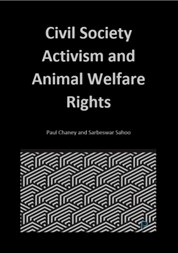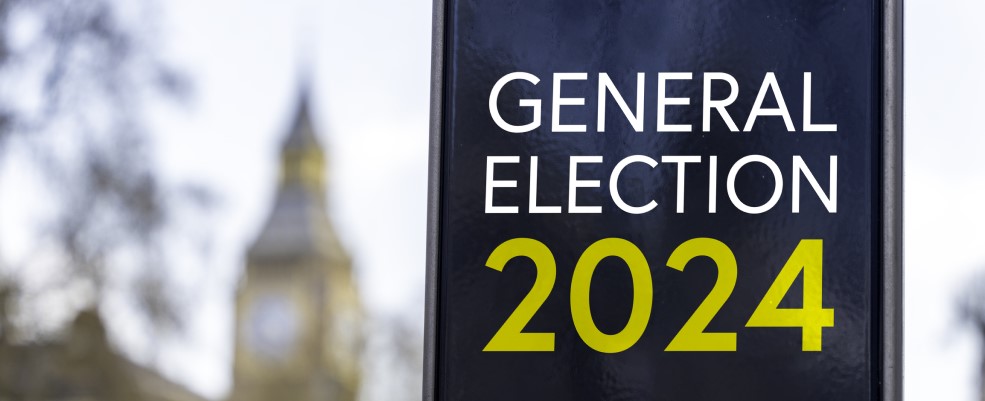WISERD Co-Director, Paul Chaney, has co-authored a new report in a project led by Dr Steven McCulloch (University of Winchester). The report entitled “Political Animals: The Democratic and Electoral Case for Strong Animal Welfare Policies in UK General Elections”[i] was commissioned as part of a campaign by 23 leading animal welfare NGOs. To locate this in the academic literature, “Partisan Theory” underlines how political parties may act as vectors, advancing civil society demands – what ordinary people want government to do. Elections are a key part of this process.
This is the first of two blog posts on the general election. Here we consider the nature of civil society demand for action on animal welfare and why this may shape the electoral fortunes of the different parties standing for election this year. In a subsequent blog we’ll look at whether GE2024 party manifestos reflect what the public wants. This matters because, in the political science literature, accountability theory suggests, if elected, parties should implement the policy pledges promised in their manifestos.
Our study reveals that nearly one third of UK voters (33%) placed animal welfare in their top three most important causes. Strikingly, the new report shows there is a supermajority support (around 66%+ of the electorate) for progressive policies to prevent animal cruelty. For example: 83% agreed with the statement “Animal welfare should be protected by the government through legislation”; 68% of British voters felt that a political party announcing a policy to pass more laws to improve animal welfare would have the right priorities; 63% believe the government should legislate to phase out intensive farming; and 77% support a complete ban on cages for farmed animals. Despite this, 85% of farmed animals in the UK are reared intensively, including 25% of laying hens being continuously caged during their laying years and 60% of breeding pigs being severely confined in farrowing crates for nearly a quarter of their adult lives.
In addition, our analysis shows that, on animal welfare, Wales stands out amongst nations: 73% of Welsh voters, 71% of English voters, and 71% of Scottish voters support more laws to protect animal welfare. Furthermore, for GE2024, there are differences based on which party those surveyed cast their vote for in the 2019 general election. Of all parties, Plaid Cymru supporters (along with the SNP) are the most supportive of animal welfare. 73% say that a party with a policy to pass more laws to improve animal welfare and prevent cruelty has the right priorities. This compares with seven voters out of ten for the Labour and LibDems (both 71%), the Conservative Party (67%); Green Party (68%) and (50%) Brexit Party voters.
The core message of the report is that parties need to address the animal welfare issues in their manifestos because it could make a difference to their performance in the General Election. We show that in Labour’s and the Conservative’s top ten target seats, the number of voters who signed sample of 10 parliamentary animal welfare petitions 2017-2019 is higher than the number of swing voters needed to win these key marginal constituencies. For example, the top Labour target seat requires only a 128-vote swing, and the top Conservative target seat requires just a 66-vote swing, yet more than 3,800 people in those constituencies have signed the sample e-petitions.
In summary, in the run up to the General Election this new study reveals consistent supermajority civil society support for stronger animal welfare measures. It also shows how this support could be influential in marginal swing seats. A subsequent blog will examine GE2024 manifesto pledges and consider whether the parties have listened to civil society demands.
 The ‘Political Animals’ Report comes ahead of a new book based on WISERD’s Civil Society research programme. It is written by Professors Paul Chaney and Sarbeswar Sahoo (Indian Institute of Technology, Delhi). It is entitled “Civil Society Activism and Animal Welfare Rights” (2025, Bristol, Policy Press) and offers a critical, theoretically informed account of civil society mobilisation for animal protection in the UK and India.
The ‘Political Animals’ Report comes ahead of a new book based on WISERD’s Civil Society research programme. It is written by Professors Paul Chaney and Sarbeswar Sahoo (Indian Institute of Technology, Delhi). It is entitled “Civil Society Activism and Animal Welfare Rights” (2025, Bristol, Policy Press) and offers a critical, theoretically informed account of civil society mobilisation for animal protection in the UK and India.
[i] Also co-authored by Dr Lisa Riley

